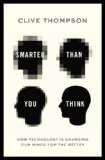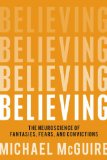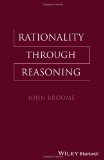September 12, 2013

Smarter Than You Think: How Technology is Changing Our Minds for the Better by Clive Thompson (Penguin, 2013)
(kindle ed.), (amazon.co.uk)
Book description from the publisher:
It’s undeniable—technology is changing the way we think. But is it for the better? Amid a chorus of doomsayers, Clive Thompson delivers a resounding “yes.” The Internet age has produced a radical new style of human intelligence, worthy of both celebration and analysis. We learn more and retain it longer, write and think with global audiences, and even gain an ESP-like awareness of the world around us. Modern technology is making us smarter, better connected, and often deeper—both as individuals and as a society.
In Smarter Than You Think Thompson shows that every technological innovation—from the written word to the printing press to the telegraph—has provoked the very same anxieties that plague us today. We panic that life will never be the same, that our attentions are eroding, that culture is being trivialized. But as in the past, we adapt—learning to use the new and retaining what’s good of the old.
Thompson introduces us to a cast of extraordinary characters who augment their minds in inventive ways. There’s the seventy-six-year old millionaire who digitally records his every waking moment—giving him instant recall of the events and ideas of his life, even going back decades. There’s a group of courageous Chinese students who mounted an online movement that shut down a $1.6 billion toxic copper plant. There are experts and there are amateurs, including a global set of gamers who took a puzzle that had baffled HIV scientists for a decade—and solved it collaboratively in only one month.
Smarter Than You Think isn’t just about pioneers. It’s about everyday users of technology and how our digital tools—from Google to Twitter to Facebook and smartphones—are giving us new ways to learn, talk, and share our ideas. Thompson harnesses the latest discoveries in social science to explore how digital technology taps into our long-standing habits of mind—pushing them in powerful new directions. Our thinking will continue to evolve as newer tools enter our lives. Smarter Than You Think embraces and extols this transformation, presenting an exciting vision of the present and the future.
Google Books preview:
See also: Book website
Comments (0)
- cognitive science,culture,new books
September 10, 2013

Believing: The Neuroscience of Fantasies, Fears, and Convictions by Michael McGuire (Prometheus, 2013)
(kindle ed.), (amazon.co.uk)
Book description from the publisher:
A new book about brain chemistry, neural systems, and the formation of beliefs from the scientist who brought to light serotonin’s many crucial roles in human behavior.
Beliefs: What are they? How have evolution and culture led to a brain that is seemingly committed to near endless belief creation? And once established, why are most beliefs so difficult to change? Believing offers answers to these questions from the perspective of a leading neuroscientist and expert in brain-behavior research.
Combining personal anecdotes and the latest research, Dr. McGuire takes the novel approach of focusing on the central and critical role of brain systems and the ways in which they interact with the environment to create and maintain beliefs. This approach yields some surprising and counterintuitive conclusions:
• The brain is designed for belief creation and acceptance.
• It is biased in favor of its own beliefs and is highly insensitive to disconfirming evidence.
• It prefers beliefs that are pleasurable and rewarding to those that are unfavorable.
• Beliefs are “afterthoughts” of unperceived brain activities; they don’t cause behavior.
• Our consciousness has minimal influence on the neural systems that create beliefs.
Based on these observations, McGuire concludes that for the foreseeable future people will continue to hold a multitude of beliefs, many of them intransigent.
Comments (0)
- cognitive science,new books
September 7, 2013

The Intellectual Powers: A Study of Human Nature by P.M.S. Hacker (Wiley-Blackwell, 2013)
(amazon.co.uk)
Book description from the publisher:
The Intellectual Powers is a philosophical investigation into the cognitive and cogitative powers of mankind. It develops a connective analysis of our powers of consciousness, intentionality, mastery of language, knowledge, belief, certainty, sensation, perception, memory, thought, and imagination, by one of Britain’s leading philosophers. It is an essential guide and handbook for philosophers, psychologists, and cognitive neuroscientists.
- The culmination of 45 years of reflection on the philosophy of mind, epistemology, and the nature of the human person
- No other book in epistemology or philosophy of psychology provides such extensive overviews of consciousness, self-consciousness, intentionality, mastery of a language, knowledge, belief, memory, sensation and perception, thought and imagination
- Illustrated with tables, tree-diagrams, and charts to provide overviews of the conceptual relationships disclosed by analysis
- Written by one of Britain’s best philosophical minds
- A sequel to Hacker’s Human Nature: The Categorial Framework
- An essential guide and handbook for all who are working in philosophy of mind, epistemology, psychology, cognitive science, and cognitive neuroscience
See also: Author website
Google Books preview:
Comments (0)
- cognitive science,consciousness,new books,philosophy of mind
September 4, 2013

Rationality Through Reasoning (The Blackwell / Brown Lectures in Philosophy) by John Broome (Wiley-Blackwell, 2013)
(kindle ed.), (amazon.co.uk)
Book description from the publisher:
Rationality Through Reasoning answers the question of how people are motivated to do what they believe they ought to do, built on a comprehensive account of normativity, rationality and reasoning that differs significantly from much existing philosophical thinking.
- Develops an original account of normativity, rationality and reasoning significantly different from the majority of existing philosophical thought
- Includes an account of theoretical and practical reasoning that explains how reasoning is something we ourselves do, rather than something that happens in us
- Gives an account of what reasons are and argues that the connection between rationality and reasons is much less close than many philosophers have thought
- Contains rigorous new accounts of oughts including owned oughts, agent-relative reasons, the logic of requirements, instrumental rationality, the role of normativity in reasoning, following a rule, the correctness of reasoning, the connections between intentions and beliefs, and much else.
- Offers a new answer to the ‘motivation question’ of how a normative belief motivates an action.
Google Books preview:
Author’s “Normativity in Reasoning” lecture on YouTube
Comments (0)
- new books






